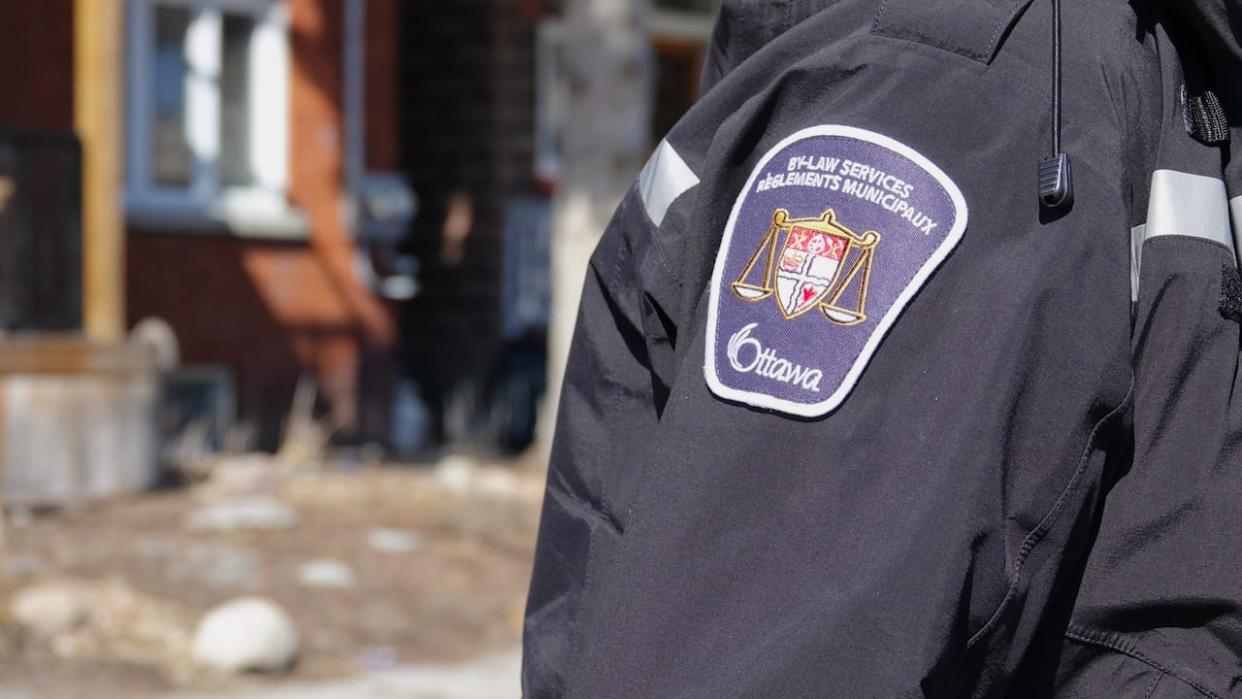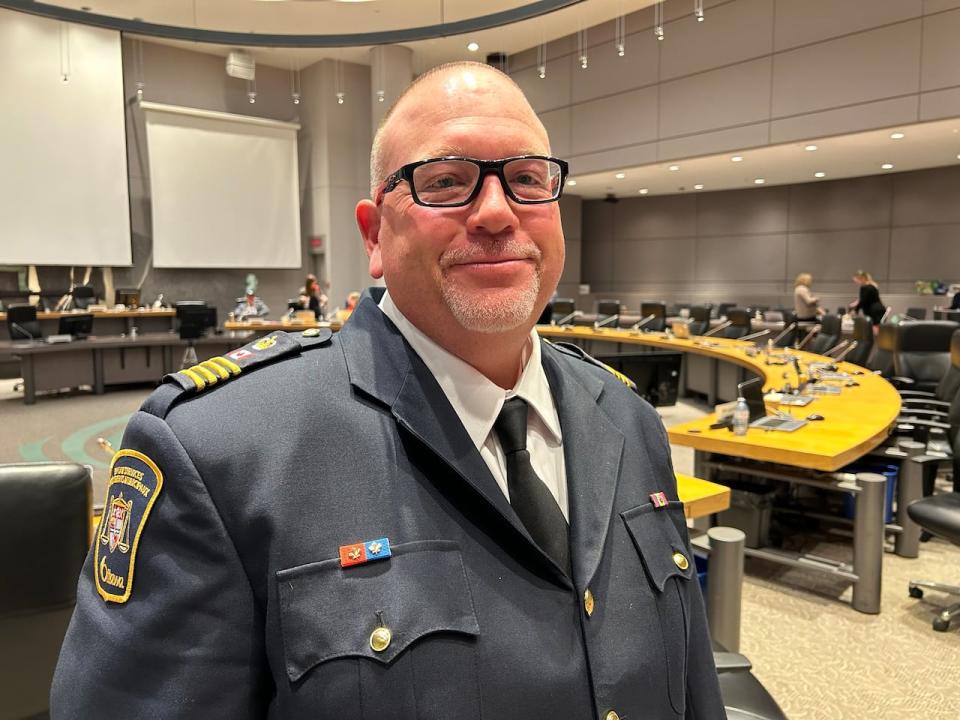Bylaw calls in Ottawa far outpacing similar Ontario cities: report

Ottawa's bylaw service says that compared to their peers, their phones are practically ringing non-stop.
Statistics from the service's annual reports show a gulf between the number of bylaw employees and the number of service calls they're responsible for, at least when compared to three other Ontario municipalities.
"You really need more staff in bylaw," said Cheryl Parrott, a member of the public who spoke at Thursday's emergency preparedness and protective services committee meeting.
"They go from pets, to taxis, to lotteries, to moose and bears. [There's] parking, A-frame signs, blocking sidewalks, murals, short-term rentals. And of course, noise is a big one."
The report states that since 2018, full-time employees in the comparable cities of Toronto, Windsor, and Hamilton have received an average of 441 calls each year.
But in Ottawa, each employee gets more than 800 calls on average, 83 per cent more than their peers.
Last year, there were more than 100,000 service requests, an increase of more than seven per cent over 2022.
"Certainly, citizens of Ottawa do use the services of this department," said River ward Coun. Riley Brockington, who chairs the committee.
The numbers don't even include parking enforcement matters, which were excluded from the analysis. But they were among the top requests last year, along with property standards, animal control and noise.

Roger Chapman, director of the city's bylaw and regulatory services department, says 'new enforcement activity' taken on over the past few years has helped drive a rise in service requests. (Elyse Skura/CBC)
A city spokesperson said only 77 employees handle all the nearly 60,000 non-parking-related requests. By comparison, Hamilton has around 76 employees — but they deal with far fewer service calls, just over 37,000 on average.
"I think we heard loud and clear from my colleagues today that they're not satisfied with the level of staff that we have now," Brockington said.
"They wanted to make sure that calls are being replied to, but we aren't overworking our bylaw officers to a point where they want to leave the department."
Brockington says these pressures are only going to mount in coming years and that funding for more bylaw officers may be needed in the next budget.
Response times falling short of standards
Bylaw officers use a priority scale to respond to calls, with priority one being the highest and three being the lowest.
While the service's response time targets were met for the highest two priorities, they haven't been met for that lowest priority category — which makes up about 65 per cent of total call volumes — for the past three years.
In fact, those response times are worsening, according to the report.
The city has also seen a sizable increase in calls about property standards between 2018 and 2022.
"I think there's a few factors that are driving the increase in service requests and none [more] than the new enforcement activity that we've taken on in the last couple years," said Roger Chapman, director of the bylaw and regulatory services department.
He named bylaws revolving around vacant properties and short-term rentals as examples.
Parrot told the committee she's seen bylaw struggle to keep up with demand and that "doing more with less has a finite life."
"Officers work hard, but if they keep falling further behind, then I would think job satisfaction decreases," she said. "And that's a job that gets a lot of unpleasant responses in the first place."

 Yahoo News
Yahoo News 
